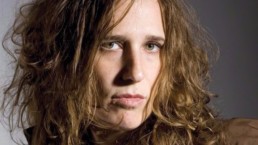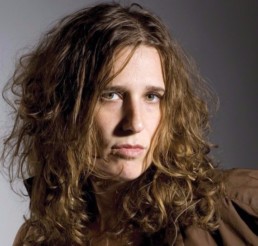Director Deb Shoval on the Magic of Lola Kirke in ‘AWOL’
"I've always been a big fan of not following rules."
With an impressive online distribution deal and a current Rotten Tomatoes score of 100%, director Deb Shoval has a lot to be proud of in her feature-length directorial debut, “AWOL.” The indie film, which premiered at the 2016 Tribeca Film Festival, is an intimate, slice of life drama about navigating through the choppy waters of a budding lesbian relationship and the determination to come out from the other side unscathed, or at least as gently as possible. In our exclusive interview with Shoval, we talk about the casting of the lead actresses, her advice for women filmmakers, and what one can expect to find on her mood board.
Lola Kirke seems finds the balance between a strong exterior and emotional vulnerability quite effortlessly. What drew you to cast her as your protagonist?
It was a tall order. The Joey I was looking for had to sing like an angel, look no older than 18 but actually be at least 18 because of the nudity, have a mouthful of imperfect teeth that signaled a working class upbringing, and have incredible range as an actress.
We were on our last day of auditions for the role of Joey in New York. This was in 2012. I hadn’t seen anyone that felt right. We were about to push the shoot to hold auditions in LA, and then at 9am on the final day of New York casting, Lola walked in. She looked like the Joey in my mind. And her singing voice…
The next day we brought Lola in for a callback with Breeda Wool, because I had my heart set on Breeda playing the role of Rayna, and I wanted to see if there was chemistry. Afterward, I brought that audition tape over to Rose Troche’s house. She is both a good friend and a mentor. God bless Rose, she pulled together a whole little crew that night, and we all watched the audition tape together. And we all agreed – Lola was magical.
As a director, what does your inspiration/ mood board look like?
When prepping for “AWOL,” I was inspired by the strong sense of place in Barbara Loden’s “Wanda,” Bruce Beresford’s “Tender Mercies,” and Terrence Malick’s “Days of Heaven.” I was committed to shooting “AWOL” the feature on location in the bucolic Pennsylvania landscape where I was raised, where the Pocono mountains meet the Appalachians and the long-gone coal industry still leaves its scars. It felt as though I’d been location scouting for this project all my life, even long before I knew I wanted to make films.
“…and then at 9am on the final day of New York casting, Lola walked in. She looked like the Joey in my mind.”

What have people asked you about the most after seeing the film?
What’s exciting to me is that in our Q&A’s after the film, people are talking a lot about class. “AWOL” has been called “a splendid meditation on the boundless possibilities of first love constricted by the trials of poverty.” It has been called “a story of star-crossed female lovers whose obstacles have less to do with societal norms than with the economic realities of Pennsylvania coal country.” My point is, “AWOL” is a love story on the surface, but the task of the film is to exist on multiple levels. Layered underneath the romance, I wanted to open a conversation about class and opportunity. I wanted to talk about the parts of this country that have been left behind, and the choices that young people make as a result.
What’s the biggest risk you’ve taken that you feel has paid off?
When I was 19, I worked as an apprentice on a small, organic, horse-powered farm way down east along the rocky coastline of Maine. Some kind of magical intervention of the universe must have brought me there because it was so far in every sense from the become-a-doctor-or-a-lawyer world in which I was raised. I had never before met educated people who had such disregard for money. Never before considered a farmer could also be a jazz musician or a novelist. I turned basil into pesto and blueberries into jam. I fed sheep, spun their wool, led them to slaughter, and transformed their soft parts into sausage. I fell in love with the smell of healthy soil and became aware of cycles of nature and the interconnectedness of all beings. That was half a lifetime ago, and I still have so much growing to do – but whatever I do know about this world, I likely learned it there.
“Layered underneath the romance, I wanted to open a conversation about class and opportunity.”

I hear you have a baby at home, what do you want your child and future filmmakers to know about a woman’s role as a director?
Ha. Don’t bring your baby to the meeting because you won’t get the job.
In your opinion, what is the best thing about indie film?
I’ve always been a big fan of not following rules. And sure, I think there’s some truth to the “necessity is the mother of invention” idea. But in all honesty, there is nothing romantic or cool about paying people shitty wages or no wages at all to work a minimum of 12 hours/day in what can often be extreme weather conditions so that they can play a supporting role in your art project, as compelling or important as that project might be. I’d love to see the US become a country that values and therefore funds intellectual curiosity and the making of art in my lifetime. I think we all would benefit. As Arundhati Roy says, “Another world is not only possible, she is on her way. On a quiet day, I can hear her breathing.”
Morgan Rojas
Certified fresh. For disclosure purposes, Morgan currently runs PR at PRETTYBIRD and Ventureland.


